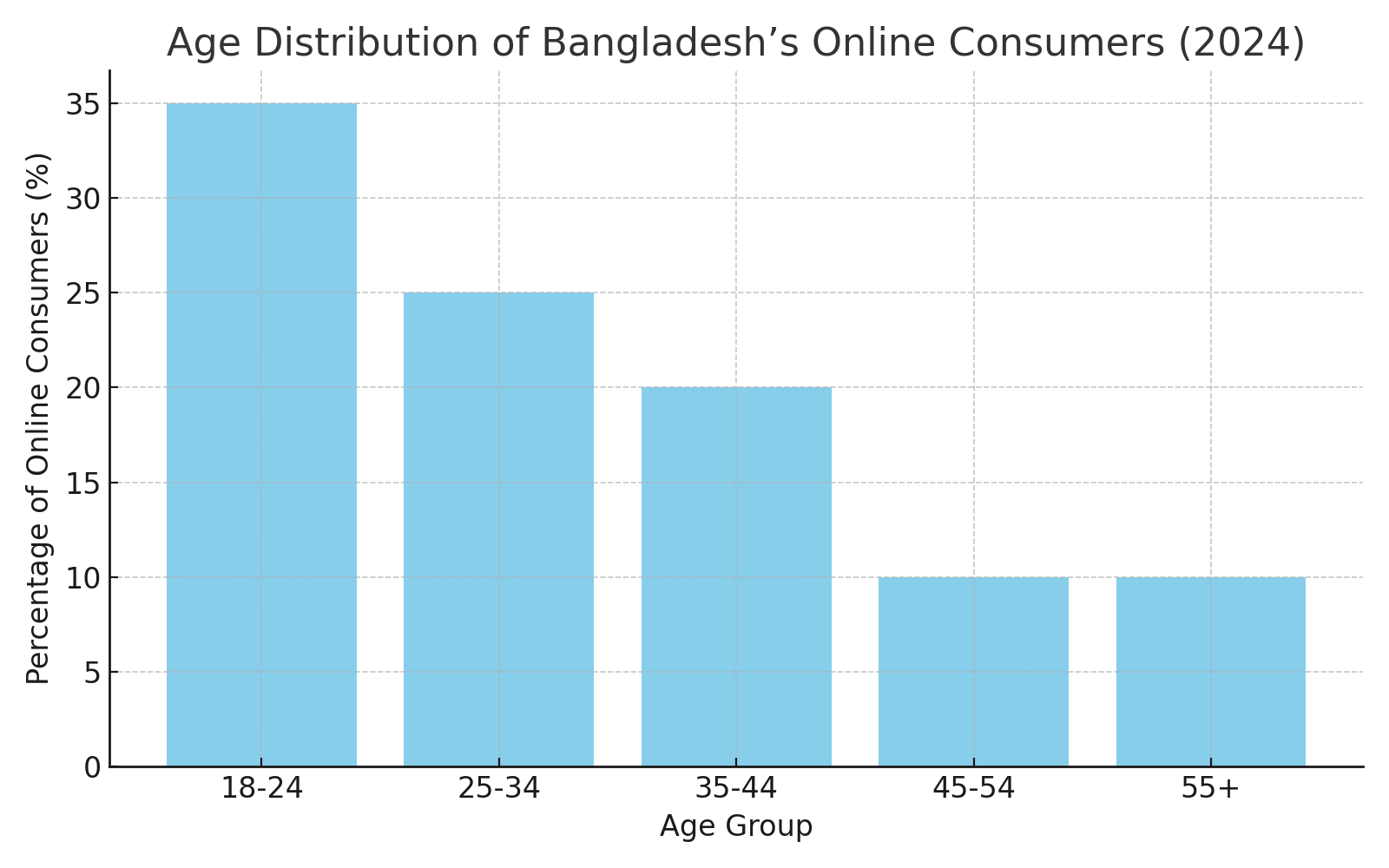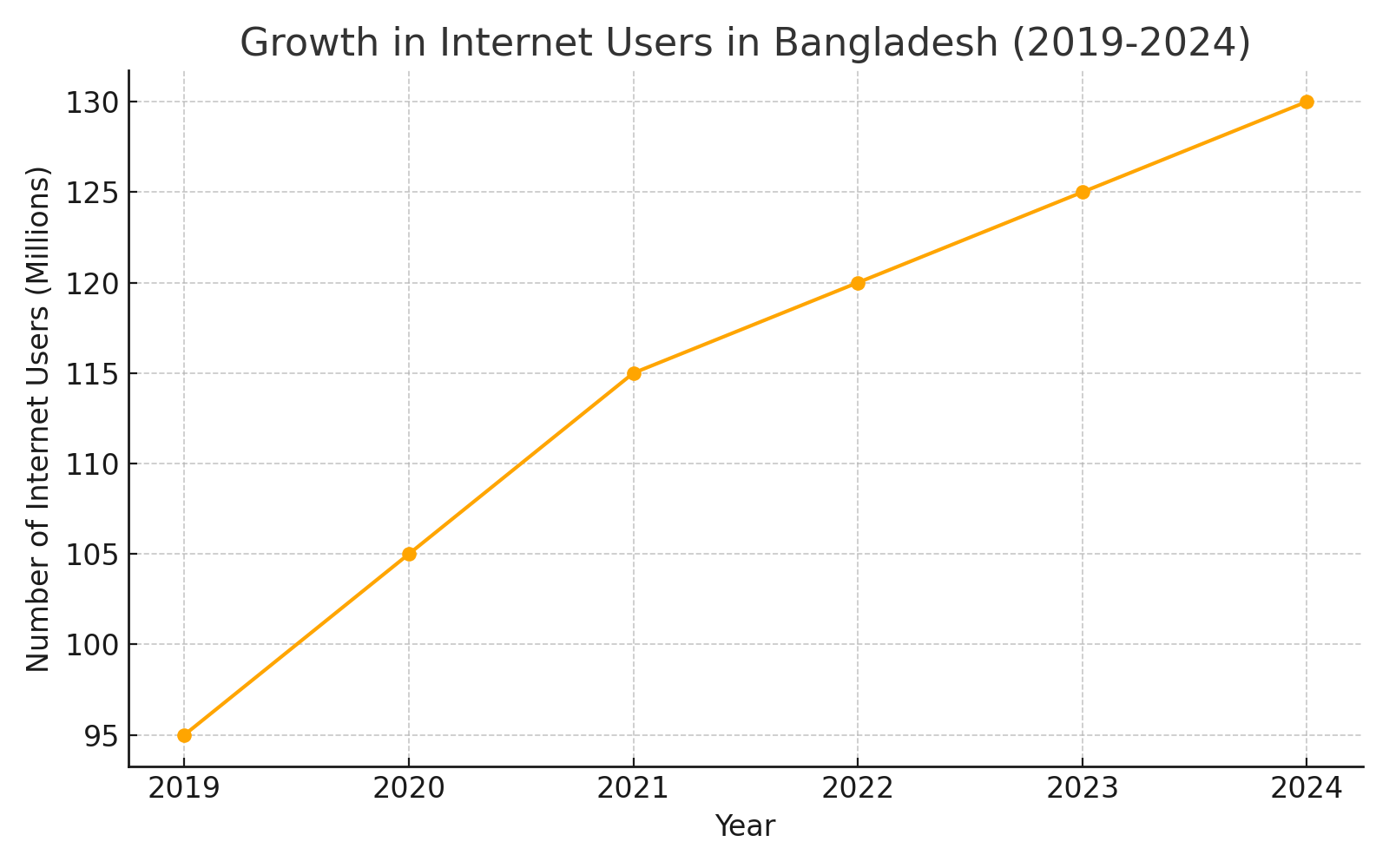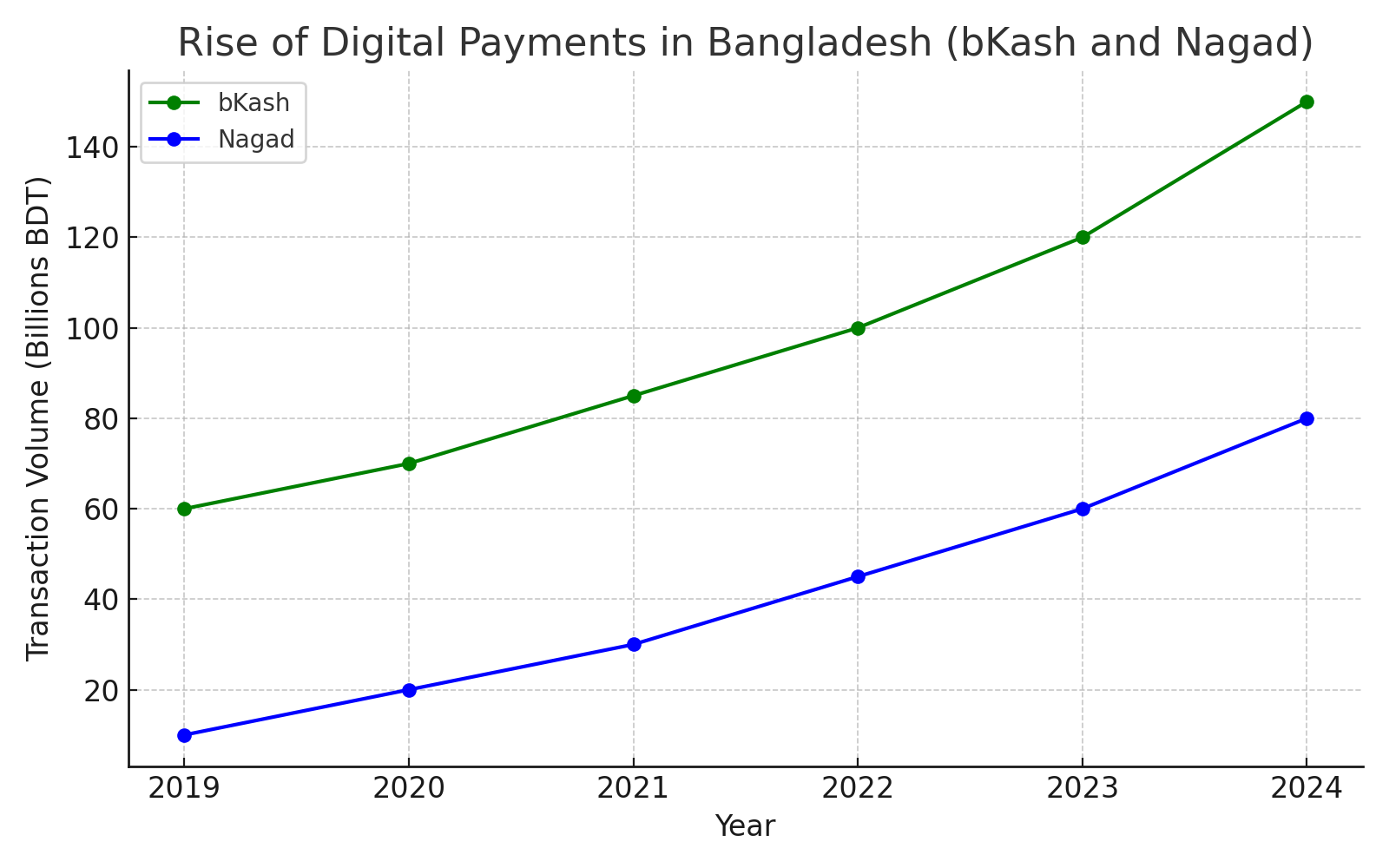The e-commerce landscape in Bangladesh is evolving rapidly, and 2024 marks a significant turning point with the recent government change in August. The new leadership has placed digital transformation and technology-driven growth at the forefront of their economic agenda. This change brings both opportunities and challenges for the e-commerce sector, and its trajectory will likely shape the country’s future in the global digital marketplace. With increasing internet access, mobile usage, and a growing youth population, Bangladesh’s e-commerce sector is poised to grow, but strategic decisions in governance and infrastructure will be critical to realizing its potential.
Impact of the Change of Government
- Policy Reforms and Taxation:
- The new administration has proposed tax incentives for startups and e-commerce businesses, which are expected to ease the financial burden on small and medium-sized enterprises (SMEs) entering the market. A reduction in import duties on technological equipment also allows for more efficient logistics, which directly benefits the sector.
- Improved Digital Infrastructure:
- The government has committed to enhancing the country’s internet infrastructure, particularly in rural and underserved areas. This initiative, if implemented effectively, could increase internet penetration and foster e-commerce adoption beyond the urban centers. The expansion of high-speed 5G networks is also being prioritized to support the growing demand for online services.
- Regulation and Consumer Protection:
- With the government’s focus on formalizing and regulating the e-commerce industry, it is expected that better consumer protection policies will be introduced. New regulations on data privacy, return policies, and payment security will likely increase trust among online shoppers and help legitimize the sector.
- Focus on Export-Oriented E-Commerce:
- The new government is keen on promoting cross-border e-commerce as a means to boost exports. Policies that streamline customs and simplify the export process are expected to encourage Bangladeshi entrepreneurs to reach international markets, especially in garments and textiles.
- Support for Women Entrepreneurs:
- The government’s commitment to promoting gender equality in the digital economy has led to specific initiatives aimed at supporting women entrepreneurs in the e-commerce space. This includes grants, training programs, and incentives to create more inclusive growth.
Factors Driving E-Commerce Growth
The combination of the new government’s policies and the existing market dynamics presents a unique opportunity for the e-commerce sector. Several factors continue to drive growth:
- Youth-Driven Market
- Age Distribution of Bangladesh’s Online Consumers

- Bangladesh has a large youth population, with over 60% of citizens under the age of 35, many of whom are increasingly turning to digital platforms for shopping. This group is expected to remain a key driver of e-commerce growth, fueled by a strong appetite for convenience and mobile-friendly services.
- Mobile Internet Expansion
- Growth in Internet Users in Bangladesh (2019-2024)

- The increase in internet accessibility and mobile phone ownership, especially with the introduction of 5G, is enabling more people to access e-commerce platforms. According to recent data, over 120 million people in Bangladesh now have internet access, with mobile devices being the primary means of connection.
- Digital Payment Systems
- Rise of Digital Payments in Bangladesh (bKash, Nagad, Rocket, 2019-2024)

- Bangladesh’s digital payment landscape continues to evolve rapidly with platforms like bKash and Nagad seeing widespread adoption. The government’s initiatives to promote cashless transactions are expected to boost e-commerce adoption by making online payments more secure and accessible.
Challenges to Address
Despite the positive outlook, several challenges remain:
- Trust Issues: Many consumers are still hesitant to shop online due to concerns about fraud and unreliable delivery services. The government’s focus on strengthening consumer protection and implementing strict e-commerce regulations could help mitigate these concerns.
- Payment Barriers: While mobile wallets and digital payment systems are growing, the reliance on cash-on-delivery (COD) remains high, accounting for 80% of transactions. Government incentives and education campaigns on the benefits of digital payments could help reduce this reliance and encourage more secure online transactions.
- Infrastructure Limitations: The e-commerce sector still faces logistical challenges, especially in rural and remote areas where infrastructure is underdeveloped. The government’s investments in roads, transportation, and logistics are expected to play a critical role in ensuring the sector’s expansion.
Opportunities Created by Government Change
With the new government’s focus on digital transformation, several opportunities have opened up for the e-commerce sector:
- Rural E-Commerce Expansion:
- With the government’s plan to improve rural internet infrastructure and introduce rural-focused e-commerce incentives, businesses now have the chance to tap into a massive market that was previously underserved.
- Cross-Border E-Commerce:
- Simplified customs procedures and policies encouraging export-oriented e-commerce create opportunities for Bangladeshi businesses to reach international customers more easily. This is especially promising for industries like textiles and handicrafts.
- Artificial Intelligence and Automation:
- Government-backed training programs on AI and automation for entrepreneurs offer the chance for businesses to integrate these technologies into their operations, improving customer service, logistics, and personalized shopping experiences.
- Increased Investment in Startups:
- The new administration’s focus on innovation has attracted foreign investment in Bangladesh’s tech sector. E-commerce startups, in particular, are likely to benefit from this influx of capital and resources.
- Sustainability Initiatives:
- With global trends leaning towards sustainability, e-commerce platforms that emphasize eco-friendly products and practices will likely receive both consumer and government support
A Path Forward with Realistic Expectations
The future of e-commerce in Bangladesh looks promising, especially with the government’s renewed focus on digital innovation and economic growth. However, success will depend on the strategic implementation of policies, infrastructure improvements, and the ability to overcome existing challenges such as trust and payment barriers.
The e-commerce sector needs to maintain momentum by continuing to build consumer trust, leveraging new government policies, and expanding its reach into underserved markets. If all stakeholders—businesses, consumers, and the government—work together, e-commerce could become a cornerstone of Bangladesh’s digital economy. Practical steps like building stronger logistics networks, improving digital literacy, and fostering innovation through AI and automation will be key to unlocking the full potential of the sector.
With the right approach, Bangladesh has the opportunity to not only meet the growing demand for e-commerce but also establish itself as a leader in the global digital marketplace.
References
- Bangladesh Bureau of Statistics (BBS) – Reports on ICT usage and growth in Bangladesh. http://www.bbs.gov.bd
- “E-commerce in Bangladesh: A Game-Changer for the Economy” – Dhaka Tribune, 2023. https://www.dhakatribune.com
- “Bangladesh E-Commerce: The Road Ahead” – The Daily Star, February 2024. https://www.thedailystar.net
- “Impact of COVID-19 on E-Commerce in Bangladesh” – BRAC Institute of Governance and Development (BIGD) report, 2022. https://bigd.bracu.ac.bd
- “How Mobile Internet is Revolutionizing Bangladesh’s Digital Landscape” – Bangladesh Post, 2023. https://bangladeshpost.net
- “Digital Payment Systems in Bangladesh” – Financial Express, May 2024. https://www.thefinancialexpress.com.bd
- “Challenges and Opportunities in the E-commerce Sector” – UNCTAD Review, 2023. https://unctad.org
- “Cross-border E-commerce: Bangladesh’s Untapped Opportunity” – World Bank, 2023 report. https://www.worldbank.org
- “Sustainability in E-Commerce: Global Trends and Local Potential” – The Business Standard, March 2024. https://www.tbsnews.net
- “Digital Bangladesh 2.0: Government’s Vision and Impact on the E-commerce Sector” – Ministry of ICT, Bangladesh, 2024. http://www.ictd.gov.bd
- “Analysis of Government Tax Reforms and Its Effects on E-Commerce” – Bangladesh Business Review, September 2024. https://bbr.com.bd
- “The Role of Women in Bangladesh’s Digital Economy” – Dhaka Tribune, October 2024. https://www.dhakatribune.com
Leave a Reply
You must be logged in to post a comment.